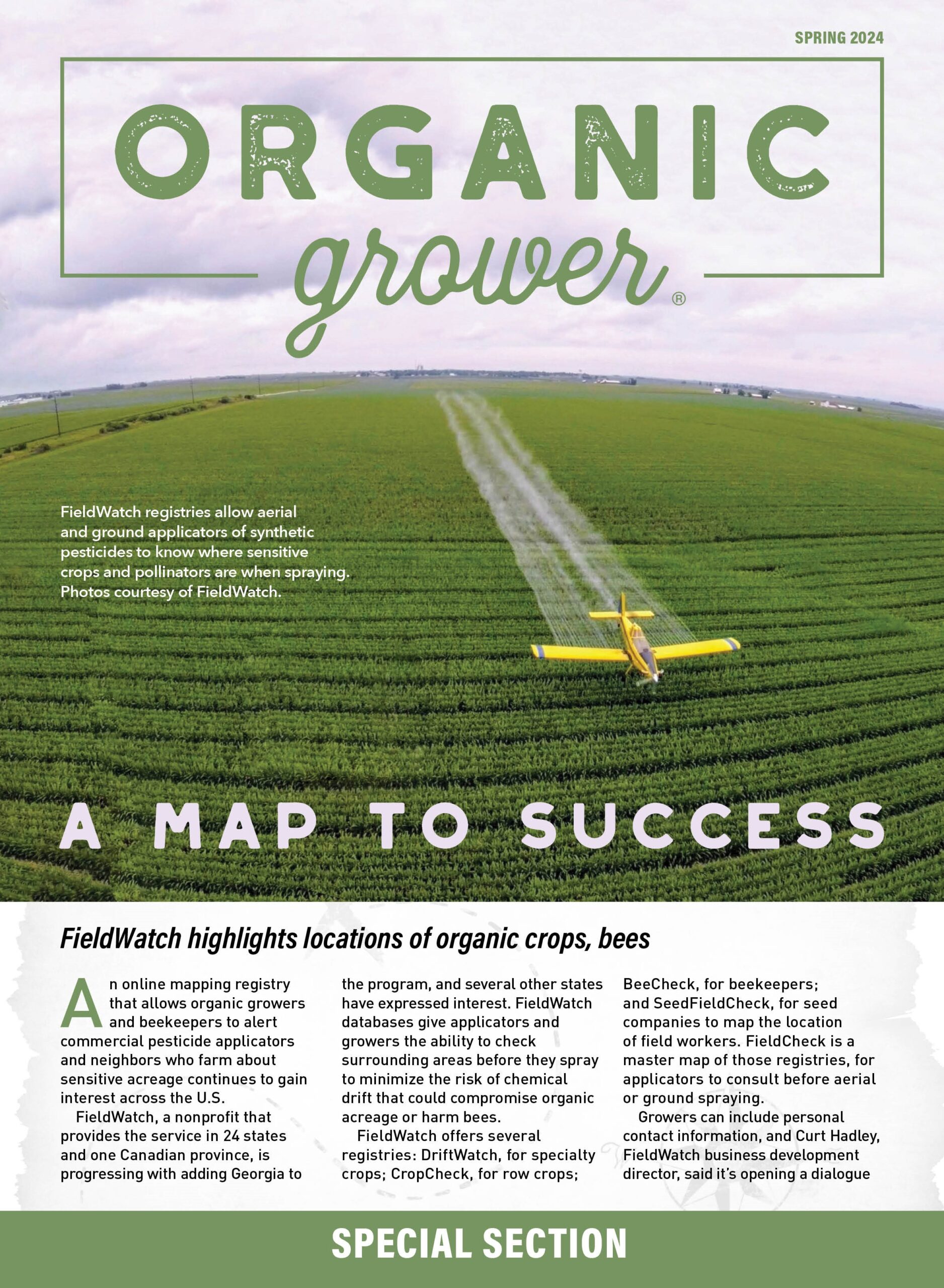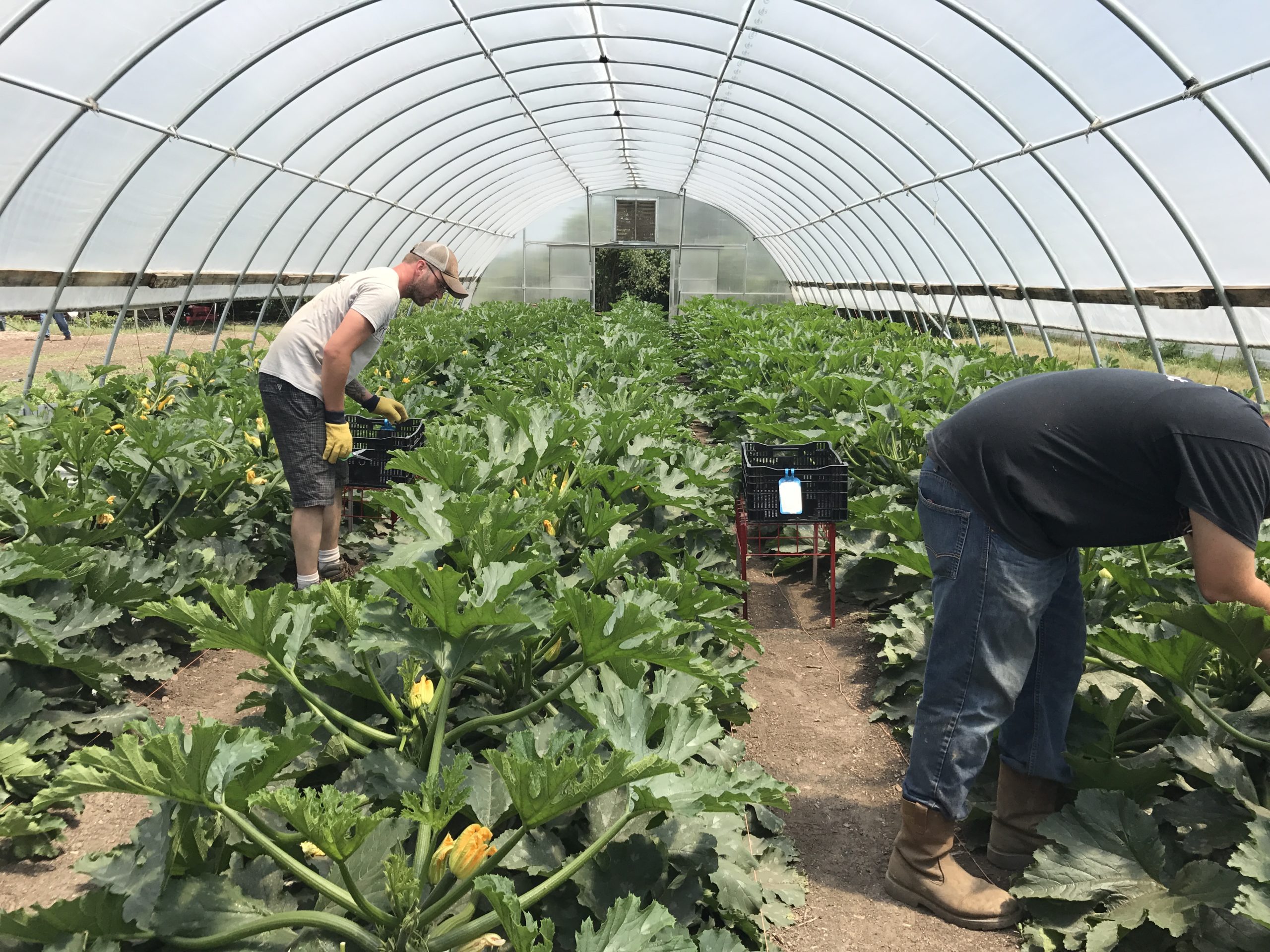
Aug 6, 2020
Playing it safe: Aligning organic production with the Food Safety Modernization Act
Growing organic fruit and vegetables that are typically eaten fresh requires farmers to follow sound practices that take crop health and food safety into account. The overall goal of safe fresh produce production is to minimize the risk of food contamination that can cause human illnesses while producing quality food.
Many of the regulations of the Food and Drug Administration (FDA) Food Safety Modernization Action Produce Safety Rule (FSMA PSR) align with the National Organic Program (NOP) regulations. FSMA PSR is a federal law that imposes regulations throughout the production of fresh produce – from planting to storage. For the most part, FSMA PSR follows many of the protocols found in the NOP related to food safety. Several of the regulations created for the NOP are acceptable under FSMA PSR, such as raw manure application intervals and compost production standards.
In addition, many of the food safety regulations for the FSMA program are common sense hygiene practices, such as washing hands after using the restroom and providing workers with a separate eating area away from the field. Both the NOP and the FSMA PSR demand a fair amount of record-keeping, but the value of the records and the benefits of following the proper protocols outweighs the required work: they guide farmers to practices that protect the environment and the health and safety of farmworkers and food consumers.
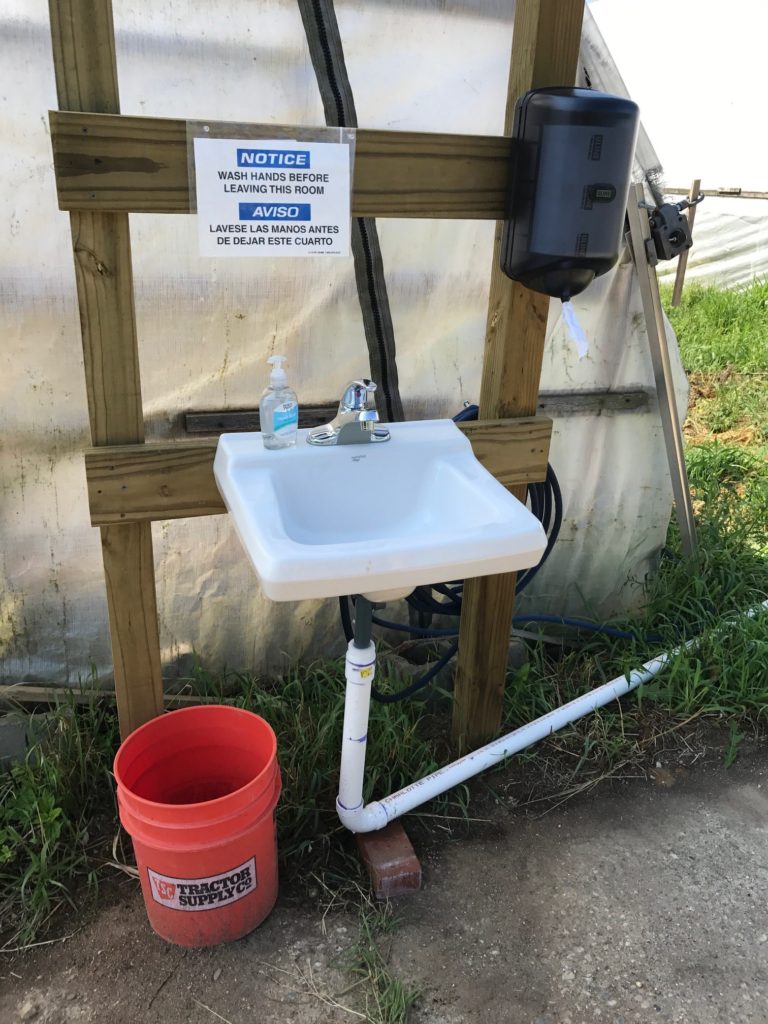
Food safety practices are relevant for all farms, but especially important for farms that grow produce that is often eaten raw, such as tomatoes, carrots and leafy greens. In fact, all farms that gross more than $25,000 in produce sales annually are required to comply with the FSMA PSR.
Some farms that are required to comply with the FMSA PSR fall under an exemption and thus are not required to meet all of the FMSA PSR requirements – however, the microorganisms that cause foodborne illness do not discriminate based on annual farm sales figures thus good food safety practices are essential for farms of all sizes. Some markets require additional documentation from farmers to verify their food safety practices, for example USDA Good Agricultural Practices (GAP) certification. It’s important to note that while similar, GAP is not the same as FSMA.
NOP practices that compliment FSMA
There are several practices that work for both the NOP and FSMA PSR including: production of compost, testing water for safety and manure application timing. NOP also requires farms to create a traceability system to assure that the organic product came from that specific organic farm. Though not required by FSMA, a traceability system is recommended. This system provides a way to trace the produce back to the farm in the event of a foodborne illness outbreak or recall. Record keeping of harvests provides a way to follow the path of produce from the field to the buyer. With good records, in the event of an outbreak – let’s say E. coli – and a food item recall, it may be possible to minimize the extent of product destruction by the farm in question if they can trace the issue back to a specific order or lot code.
Compost
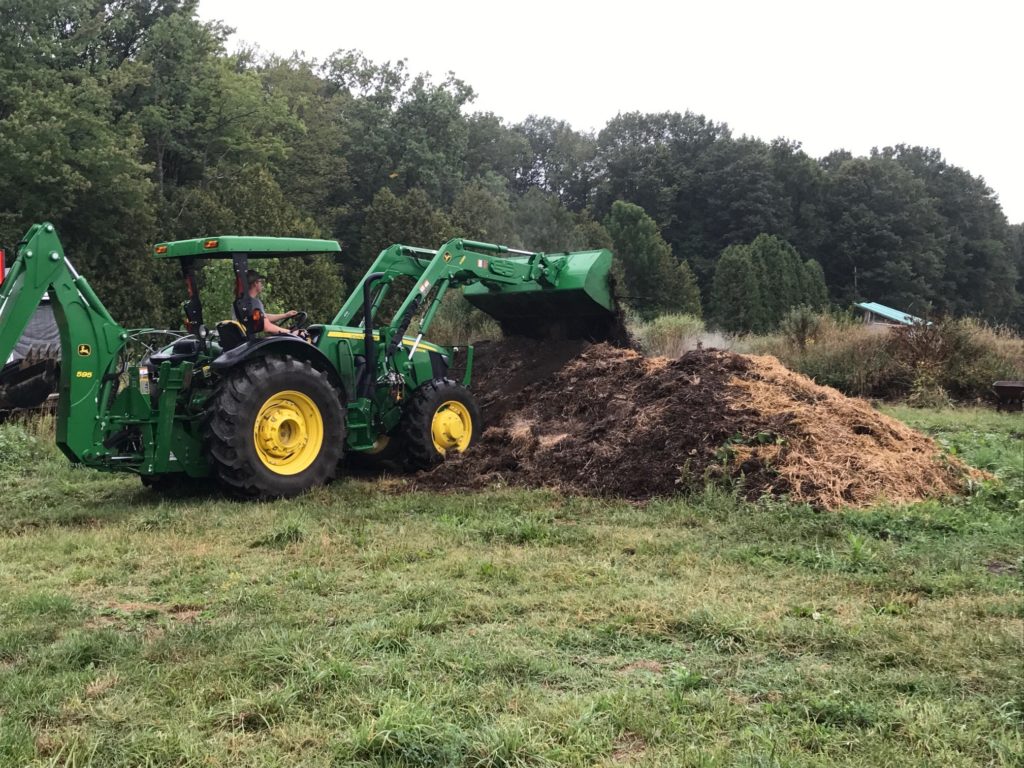
Compost used in organic production requires the same process and record-keeping as for FSMA regulations. The FDA, the regulatory body of FSMA, has not currently established an application interval for raw manure, pending further research. However, growers following the NOP requirements of 120 days for produce that contacts the soil and 90 days for non-soil contacting produce may continue to do so until further guidance is provided.
Production of compost can be made from any type of manure (organic or conventional sources); however, it should not be made from human waste or even slurry as both forms are risky since they may contain human pathogens. If compost is made directly on the farm it should be located at a place that water or wind run-off does not lead to crop contamination in a nearby field. Situating the compost production adjacent to the crop fields may be practical from the standpoint of transportation of the finished product but if the compost is not completely mature, run-off or blown compost may contaminate an adjacent field.
Under the FSMA PSR, use of agricultural teas including compost tea as a soil amendment must follow the regulations associated with proper production and use of compost. Additionally, if any biostimulants such as molasses, sugar, yeast extract or algal powder are added to compost tea, the FSMA PSR requires the tea to be treated as raw manure. Under the FSMA PSR, foliar application of compost tea is considered a pesticidal activity and requires the application to be recorded in production records, describing the application rate and timing. Compost tea that is used in certified organic production systems must be produced with potable water and use compost that is produced following organic practices, maintaining that no biostimulants are included in the tea. Using this approach to produce the tea permits application at any time during the growing season, as with compost in NOP systems.
Vermicompost, compost made from worm castings, is more challenging to prepare for NOP organic systems. Vermicompost is allowable in farming systems that are following the FSMA PSR. Since vermicompost cannot be heated during its production (it will kill the worms) there are extended time periods required before it can be used on organic crops. The production of vermicompost can be produced following one of the several allowable protocols (www.ams.usda.gov/sites/ default/files/media/5021.pdf). The four methods allowed in certified organic systems include outdoor windrows (six to 12 months), angled wedge systems (two to four months), indoor container systems (two to four months) and continuous flow reactors (30-60 days).
In USDA documentation, it was noted that verimicompost is completed when the worms move out. In outdoor windrows, that took six months in a warm environment and 12 months in colder climates. Under the NOP, certified organic farms are allowed to apply finished vermicompost at any time but if it is not properly finished then it must be applied as raw manure. In contrast, FSMA does not discriminate between finished and unfinished vermicompost: farms following FSMA must always manage vermicompost as raw manure. Under both programs, notes must be maintained about the inputs used and the process; including dates, temperatures and actions taken.
Many organic farmers find it more practical to purchase these inputs from a commercial business and obtain paperwork from that supplier to document the production process. The purpose of these requirements, provided by the USDA (NOP) and FDA (FSMA), is to protect consumers and the environment: safe inputs must be used and the processing system must be followed in order to minimize the risk of foodborne illnesses pathogens surviving in the harvested produce.
Water
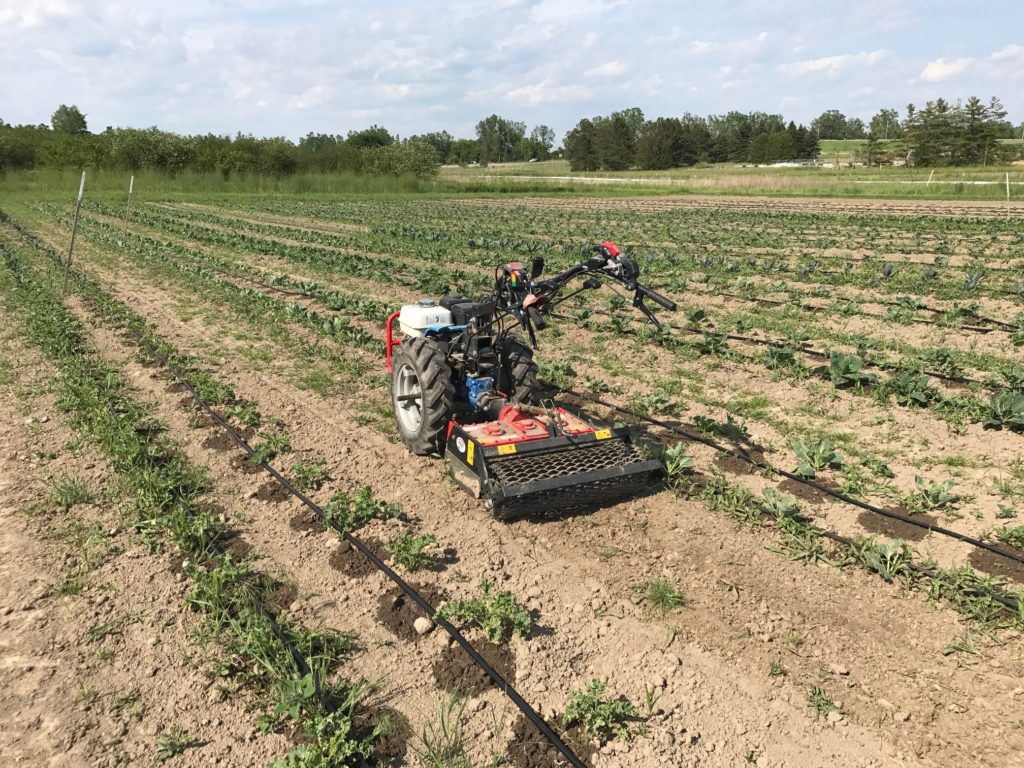
The food safety risks associated with water used during food production for irrigation, fertigation, sprays, etc. vary greatly depending on the source of the water, when it is applied and how it is applied. Open surface water such as a pond has a much higher probability of becoming contaminated than groundwater from a properly constructed and maintained well. Water applied closer to harvest is riskier because there is less time for the sun’s UV rays to do their magic of destroying harmful pathogens.
Application methods in which water comes into direct contact with the produce, such as overhead sprinklers, is riskier than methods that avoid produce contact. Under the FSMA PSR, farms must inspect their water sources and distribution systems on an annual basis. Under the FSMA PSR, there are different water testing requirements depending on the source and use of the water.
The best option for irrigation, in terms of water conservation, plant health and food safety is drip irrigation. This system involves plastic tape that carries water down rows of the field and has emitters that exude water, slowly and without splash. The no-splash aspect is especially important for growers aiming to avoid contact of irrigation water with produce. Just be aware that a leak or broken emitter can quickly turn a no-contact application into a high contact application. Drip irrigation directs water straight to the crops’ roots. To supply crops with nutrients, a siphon tube can be attached to the drip irrigation system. This fertigation system pulls nutrient solution directly into the irrigation water.
Save time and money
In the long run, food safety precautions can save time and a crop, and most importantly, human lives. After following precautions from this COVID-19 pandemic for four months, we can all agree that an ounce of precaution is worth a lot. A traceable crop containing a foodborne illness is not good for anyone, but a non-traceable food source can require the destruction of an entire farm’s crop from that season.
An organic farmer who is compliant with FSMA can piggy-back on water tests and some paperwork documenting practices that are required by both NOP and FSMA PSR. Being in compliance with FSMA PSR will provide assurance to your customers. If you are looking to market your food safety practices to obtain new accounts or market channels, you may need to add a certification program such as USDA GAP or USDA GroupGAP. Unlike organic certification, food safety certification does not typically bring a price premium; rather it is more of a ticket for entry.
Additional information about FSMA requirements and strategies for compliance can be found at www.canr.msu.edu/agrifood_safety/ and information about NOP inputs can be found at www.ams.usda.gov/sites/default/files/media/Compost_FINAL.pdf.

